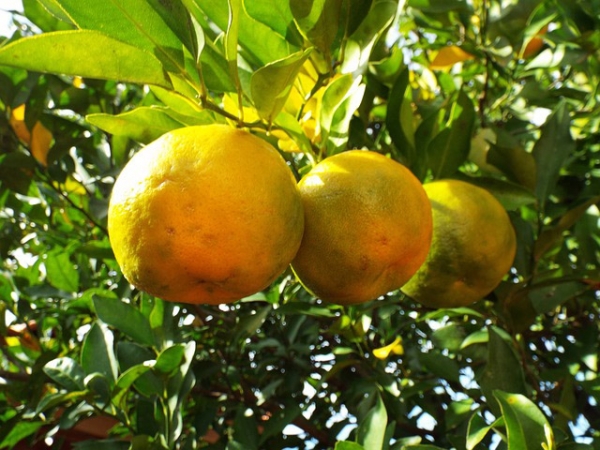Bergamot Essential Oil FCF
Citrus bergamia
Bergamot Essential Oil that is labeled FCF (furocoumarins-free) designates that it is a rectified essential oil. Furocoumarins may have phototoxic effects on the skin. Therefore, in order to guarantee safety, bergapten and other phototoxic components of Bergamot Essential Oil should be removed, resulting in a furocoumarin-free (FCF) Bergamot Essential Oil. Currently, there is a furocoumarins-free (FCF) Bergamot Essential Oil available in preparations for topical use, but is extremely difficult to find.
Known Uses
Bergamot Essential Oil and FCF Bergamot Essential Oil Components of Bergamot Oil are antibiotic and disinfectant in nature. They prevent the growth of germs, virus and fungi. It effectively restricts infections, including those of the skin. It is said to cure infections of the colon, intestines, urinary tract and kidneys. It promotes fast healing of wounds, cracks on the skin and heels, ulcers, eczema, and itching, and also protects wounds from becoming septic and developing deadly tetanus.
Bergamot Essential Oil reduces pain from headaches, sprains, and muscle aches. It is used in vaporizers to relieve congestion and loosens phlegm and mucus in the respiratory tract. Researchers believe it may be able to eliminate the formation of gallstones, protect against colic, halitosis, bronchitis and diphtheria.
Bergamot Essential Oil soothes nerves and reduces anxiety and stress, high blood pressure, insomnia, and depression. It also stimulates certain hormones, which induce feelings of relaxation and sedation, like dopamine and serotonin. Bergamot Essential Oil helps digestion and regulates the peristaltic motion of the intestines, making bowel movements more regular. It can reduce fever by stimulating perspiration; it kills worms, and can be applied to infected teeth or used as a mouthwash. It relaxes nerves and muscles, and gives quick relief from cramps, convulsions, and painful muscle contractions and aids people with chronic cough or asthma.
Bergamot Essential Oil is helps scars and other marks on the skin disappear. It also makes the distribution of pigments and melanin even and uniform. Bergamot Essential Oil is an excellent deodorant and is often used in room fresheners and sprays.
History
Although Bergamot Oil is native to tropical Asia, it is now cultivated in Southern Italy in the Calabria region as a result of mutations from other species. Alternatively, it may originate from Antilles, Greece, and the Canary Islands, from where Christopher Columbus imported it. The name “bergamot” seems to be derived from Berga, the Spanish city from which the plant was transported. Today, the trees are cultivated almost exclusively along the southern coast of the Calabria region where more than 90% of the world’s Bergamot Essential Oil is produced. However, small numbers of Bergamot plants grow in other countries, such as Greece, Morocco, Iran, the Ivory Coast, Argentina, and Brazil.
Warning
Unless the Bergamot Essential Oil is labeled furocoumarins-free (FCF), it must be protected from sunlight, because bergaptene, one of its components, becomes poisonous if exposed to sunlight. It should always be stored in dark bottles in dark places. Exposure to sunlight should even be avoided after it is applied or rubbed onto the skin until it is fully absorbed. It should be diluted when used topically or used in a diffuser. Bergamot Essential Oil contains furocoumarins, which may have phototoxic effects on the skin.
SHOP FOR BERGAMOT FCF ESSENTIAL OIL ON AMAZON
